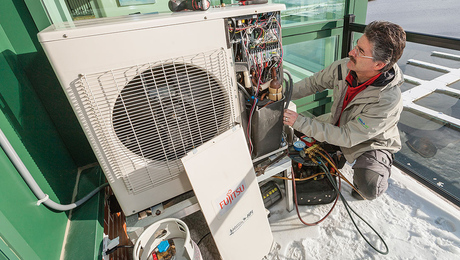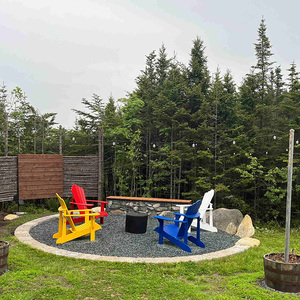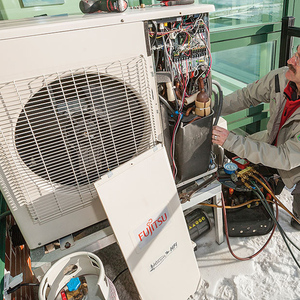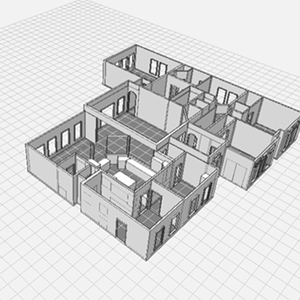I’ve been reading about impact drivers lately. I’m not sure I understand the difference between an impact driver, an impact wrench, and a hammer drill.
Would driving screws with a hammer drill be just as good as an impact driver? Would an impact driver drill holes in masonry as well as a hammer drill?
I’d like to ask what the difference is between these tools? Is there really much of a difference?



















Replies
Impact drivers rotate the bit by means of spinning a weight that acts like a hammer to twist the chuck (as opposed to pound the bit into the work). Kinda like trying to loosen a stuck nut by gripping it with a wrench and smacking the wrench handle with a hammer so it turns. For the power input, they'll outdrive any other method and cam out less and break less screws. There are a few corded models around, but most are cordless. Hands down the best way to drive fasteners (except where overdriving is a concern).
Impact wrench is similar, but generally heavier duty and generally used for nuts & bolts as opposed to screws. Generally corded or air driven. Useful in gas stations, for driving long, large lag bolts, and for generally getting nuts so tight you can't loosen 'em without a shape charge.
Hammer drills (and SDS drills, which are similar, but heavier duty) apply an impact in line with the axis of the bit -- in & out, as oppose to the round & round for an impact driver. These are for drilling or chipping masonry. I can't even imagine using one for driving fasteners -- you don't really want to pound the screw in, you want to turn it. FWIW, hammer drills are pretty useless now that you can get an SDS so cheap.
Drills are for making holes, impact drivers are for driving screws and SDS drills are for masonry. Hammer drills are for selling at the garage sale when you get and SDS.
Mike Hennessy
Pittsburgh, PA
Everything fits, until you put glue on it.
Edited 6/18/2009 7:30 am ET by MikeHennessy
I beg to differ a little, just last week my Impact battery was dead, so I used my hammer drill instead ( DW 18V hammer, Mak. 14.4 Impact) SO I removed the neat Malco fibercement shears from the hammer drill ;) and drove a few deck screws...worked prettttttttty well actually.And with hex shank bits, impact DRIVERS work pretty well as a fast , low torque drill for smaller diameters.Welded a SDS shank to a holesaw once (4"), eh...don't bother. It was a cordless Makita, and they "clutch out" at a given torque.
The hammer drill applies the impact in line while an impact driver applies it rotationally.
Welcome to the
Taunton University of Knowledge FHB Campus at Breaktime.
where ...
Excellence is its own reward!
I just got one of the little Bosch impact drivers, absolutely love it! Even put in a few 1/4" lags with it, about 3".
Way back in the 80s, when I first started using Tapcons, we always used the hammer drill to install them. It worked well most of the time, didn't ream out the holes like just spinning the drill would.
I was never sure whether that was the correct method, the instructions were kinda vague, but it seemed to work.
Anybody use one of these?
Not a whole lot of torque, but I think about 18k rpm.
Light and fast for trim screws.
View Image_________________________________________________
http://www.youtube.com/watch?v=8_h1vk23kik
Almost all they use in industrial apps. always see the hose from above and even a retractor to help with the weight for all day use.I use one often.
In a nutshell:
>> the difference between an impact driver,<<
applies impact in a rotaional direction generaly used for driving screws and small hex headed fasteners with usually wood type threads
>> an impact wrench,<< scaled up version of an impact driver generally used by mechanics to loosen / tighten bolts or nuts machine screw type threads
>>and a hammer drill.<< applies impact in a linear direction - in line with the bits - generally used for drilling holes in masonry - combines impact with rotation of the bit - usually can be switched from rotation only to impact combined with rotation or impact only (depending on model).
>>Would driving screws with a hammer drill be just as good as an impact driver?<< No, although a hammer drill typically has a relatively high level of torque output and will serve as a heavy drill motor - rotation only.
>>Would an impact driver drill holes in masonry as well as a hammer drill?<<
No, and generally they do not have a chuck to even hold a drill bit - a hex shanked bit can be inserted in them, but their masonry performance is poor at best.
They are three distinctly different tools, each well suited to particular tasks.
Jim